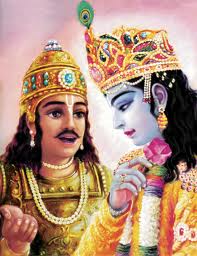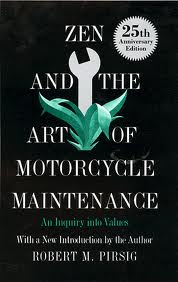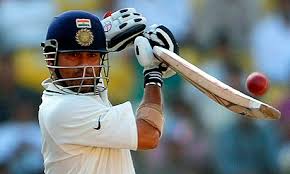Most Actions have a binding effect. That in sense is the design to keep the world moving in perpetuity. For example, winning a race would seem perfect, but even that has its own baggage. The baggage could be some rivals getting jealous, loss of privacy etc. Similarly, losing itself produces its own side effects. So results arising out of actions bring about some bondage.
It is then very rare to find people performing actions which would not bind them. What are such actions and how does one perform them? Can one in the current scheme of things be really able to do something without having the bondage out of results? Can a CEO of any organization be not bound by the results of his actions?
The key in this is expectation. Results by itself don’t bind oneself. It’s the expectations from the results which create attachment and bondage. How can one not have expectations? While it is just natural to have them, it has and will continue to be the root of this bondage. What would be the way of reigning in the expectations?
Krishna in the Bhagwad Gita advises the Despondent Arjuna – to not worry about the results (fruits) of one’s actions, and just surrender the act into Him.
In the Bhagavad Gita, Krishna says:
“tasmad asaktah satatam karyam karma samacara asakto he acaran karma param apnoti purushah”
Therefore, without being attached to the fruits of activities, one should act as a matter of duty always, for by working without attachment only one attains the Supreme.
Another perspective is to do things for the collective Good – That is called Yagna. Whenever such acts are performed for unselfish benefits, the act is deemed to burn the bondages of Karma. Unfortunately, even though they perform good deeds – people do get caught up in the results. Often, good people want respect and appreciation and that in itself is bondage.
In the book “Zen and the Art of Motorcycle Maintenance”, the character Phaedrus describes the difference between planned acts and spontaneous acts, the latter which are being performed without any measure of expectation. An arduous mountain expedition with its rigor when performed as a pilgrimage has a different quality to the same act of climbing the mountain. There is no baggage of expectations. It certainly is uplifting even though physically it brings the same amount of tiredness. The spirit of doing the latter act is that of Joy.
So what’s the verdict – Joy is freeing the mind from its own bondages. Joy is in doing the act. Joy is not outside the action. When every small act is done joyfully, without the mind paraphernalia, it brings freedom. That is perfection in action – perfect because the perfection in the being is expressed through the act. Not of the mind.
The Yoga happens as a result of the mind not being caught up in the results of the act. That is Karma Yoga – the perfect action – free from any bondage – joyfully and effortlessly.
True Karma Yogis never look back at successes or failures – because that doesn’t matter to them. They have done the action out of joy, and it is over. Period. The world will definitely analyze their actions, and results, but it will not bother them, because they are enjoying the game, not the results.
Sachin Tendulkar epitomizes this through the love for the game. It is the love which keeps him going even though his body and mind now are not so agile.
Are you ready to face every ball that is bowled at you for the sheer joy of facing the delivery? Are you ready to be a Karma Yogi?
By Vikas Bhatia









